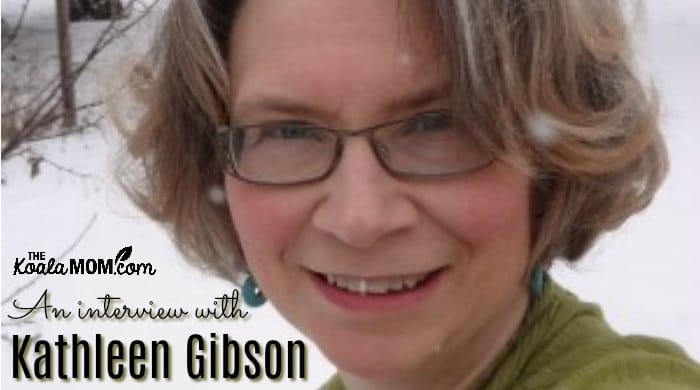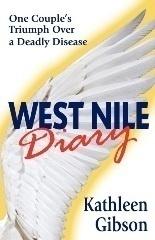Kathleen Gibson is one of the first writers I met at my first Inscribe Christian Writers’ Fall Conference. I was the youngest writer there, just starting to explore what it meant to be a “writer,” and she was very encouraging.
One piece of advice she gave me was to always have a business card. I’ve always kept this advice and often been glad that I have a card to hand to someone who asks me a question that I’ve answered on my blog. It’s easy to pass them a card and say, “Here, check out more online and stay in touch!”

TKM: How did you become a writer?
Kathleen Gibson: As a child I loved books, but outside of writing letters (which is still, I think, one of the highest use for words), I didn’t publish until I was almost thirty. I fiddled around and published little for a few years—a necessary wandering, I call it, while finding my writing feet.
When I found my particular writing niche, the personal essay (that doesn’t mean I don’t write other things), I found I couldn’t stop.
I still have difficulty calling myself a writer, honestly, even with my publication background as freelancer, author, columnist, and magazine editor. I still stumble over the title ‘author’ when asked by strangers. I use the title primarily to justify the amount of time I spend at my computer.
TKM: What inspires you to write?
Kathleen Gibson: Deadlines, usually. Strong emotion helps. Menopause does too—it provides the urgency to write things down so I don’t forget them. Men have difficulty with that.
TKM: What authors do you admire, and why?
Kathleen Gibson: Honestly, I write far more than I read!
But among others, I enjoy C.S. Lewis for his use of metaphor, Jan Karon for her genuine portrayal of decent human nature and a man of God (my husband is a clergyman!), Kathleen Norris for her sacred exploration of the human/divine connection, Anne Lamott for her open quest to discover what it means to be a follower of Christ today. Phil Callaway, because he’s so serious.
Related posts:
- Joyce Harback (an interview with a poet)
- Violet Nesdoly (poet, blogger, reader)
- Elaine Ingalls Hogg (author and historian)
Kathleen Gibson’s Writing Advice
Kathleen Gibson was the keynote speaker at this year’s ICWF Fall Conference. In her Friday night session, she talked about writing for Reader’s Digest—how she got started there and why she writes for the secular market.
She says we should write because we believe God can make a difference in someone’s life through our words. For her, that meant writing for Reader’s Digest, because then the words God had given her reached a huge audience.
Kathleen recommends writing a column for your local newspaper as a way to improve your own writing but also to connect with people. To get started, pitch ten sample columns to a newspaper editor. Tell the editor that if he receives a good response to those columns, you’ll keep writing.
In her own column, Sunny Side Up, Kathleen takes her readers into her home, trying to show them how one Christian home is. She tells people about how God works in her ordinary life.
In her Saturday morning plenary session, Kathleen Gibson gave us a list of seven things God requires of writers.
First, God requires that our words be heard.
If we are called to write, then we are called to have an audience; there is someone who needs to read what we have to write. Writing for ourselves is selfish and arrogant. Scripture says that we are never provided gifts for our own enjoyment, but to edify others.
Second, God requires that we become word-wrestlers.
Writing means wrestling with concepts you’ve danced around before but now must pin down and confront. God gives words.
Third, God requires that we write and speak things that we’d often rather not.
If God gives you a story to tell, he expects you to keep telling it as long as he requires. Kathleen talked about the story she and her husband share about West Nile Virus, and how at times she’s wanted to stop talking about it and move on to other things. But God has called them to tell that story. He gives us words with which to bless others.
Fourth, God requires that we do whatever it takes.
Publishing has gotten complicated in the last few years. Being a writer means more than just waiting for inspiration. Writers have a burning to write, even when the glow or inspiration fades.
So do the work required to dig the good words out: develop your writing (take courses), develop the discipline to write every day, develop a group of writers to encourage you and critique your work, and schedule consultations with the One Who inspires words.
Fifth, God requires our flexibility, our willingness to change.
Don’t hold too closely to the gifts that God gives you; He may call you to something else. Writers must do what editors require to be published, and they must be willing to change with the times. Publishing is a Volkswagen industry, not a Cadillac industry; you can’t make money writing anymore.
Sixth, God requires that we be willing to give feet to our words.
Remember the scene between Eliza Doolittle and Freddy in My Fair Lady, where Freddy reveals his love to Eliza and she demands that, instead of giving her words, he show her his love. Act on the thing you’ve been writing about.
Seventh, God requires us to be effective people in our own backyards.
We must make our words ring true in our writing, our homes, and our workplaces. Kathleen shared a story of welcoming two little girls into her backyard and spending time with them, then having them want to sit and watch her write. The Word of Life wants to be read on the pages of our life first.
More about Kathleen Gibson
On her website , Kathleen says, “Life is always short, often beautiful, and usually way too complicated. God is always large, always loving, and forever good–even when that looks doubtful. I’m very small, (well, less small than I used to be!) and very simple. And faith is always necessary. So is chocolate.”
, Kathleen says, “Life is always short, often beautiful, and usually way too complicated. God is always large, always loving, and forever good–even when that looks doubtful. I’m very small, (well, less small than I used to be!) and very simple. And faith is always necessary. So is chocolate.”
Kathleen Gibson has written hundreds of magazine and newspaper articles and columns. She’s also the author of West Nile Diary: One Couple’s Triumph Over A Deadly Disease and Practice by Practice: The Art of Everyday Faith. You can read her weekly column, Sunny Side Up, on her blog or find her on Facebook.

No Responses Yet